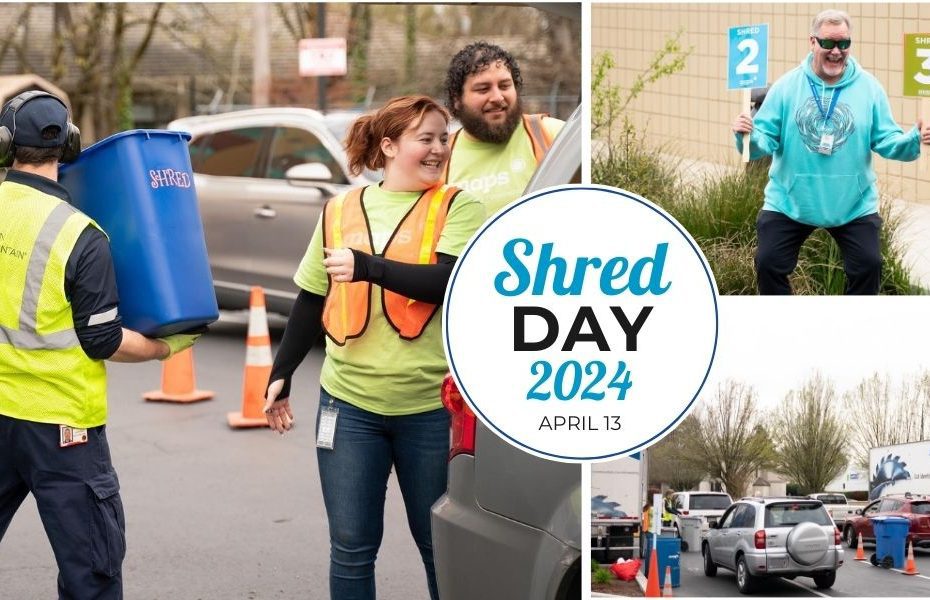Welcome to April! It’s the month of taxes, cherry blossoms, and, of course, Earth Month. Each April, we celebrate our planet and remind ourselves how important it is to care for it. As we celebrate Earth Month (and Earth Day on April 22), there’s no better time to explore how going green in our daily habits can benefit the environment and save us some cash.
In honor of Earth Month, we’ve got a few simple, yet effective tips to incorporate eco-friendly practices into your lifestyle while also padding your wallet. From energy-saving tips to reducing waste and making smarter consumer choices, going green isn’t just about environmental responsibility—it’s also about making savvy financial decisions that can positively impact your budget in the long run.
1. Go Paperless
Did you know that you can do almost all your banking on your mobile device or desktop computer? Sign up for our free online banking service (or download the app) and you can check your balance, transfer funds, pay bills, access online statements, and keep tabs on your budget wherever you are—no paper required. In the meantime, if you would like to sustainably dispose of your accumulated documents, mail, and paper, put our Annual Shred Day on your calendar. On Saturday, April 13, 2024, you can bring 2 mid-sized boxes to the Maps High Street Branch and Professional Center (465 Division St NE in Salem) between 9 am and 1 pm, to be shredded and securely disposed of.
2. Meal Prep with Reusable Containers
Rising inflation means rising food costs. In fact, a recent US Foods study showed that the average American spends $166 monthly per person on dining out. With a family of four, that adds up to a lot of money (over $600 per month)—not to mention a lot of single-use containers. To cut back, plan ahead. Whether you live alone or with a large family, planning just one or two meals daily can significantly reduce waste and cut costs. Bonus points: Invest in some sturdy reusable containers (preferably made of sustainable materials like bamboo, recycled plastic, or glass).
3. Skip Bottled Water
According to the University of Michigan Blue Planet Ambassador Program, the average American spends $5 each week on bottled water. That’s around $260 a year. All that hydration comes at a cost—and not just for our wallets. Landfills worldwide are filled with plastic bottles because they take over 400 years to decompose. As they break down, they release nanoplastics and microplastics into our air, water, and soil. Recent studies have shown that the average human consumes as much as 5 grams of microplastics each week, which is roughly the size of a credit card. Cut costs and combat this trend by investing in a reusable water bottle—ideally one made from BPA-free, stainless steel, glass, or aluminum.
4. Switch to a More Fuel-Efficient Car
An electric vehicle can not only save you money at the pump, it often comes with tax incentives. Electric Vehicles also require less maintenance than conventional vehicles—in part, because there are fewer fluids and fewer moving parts. If you are considering the switch, talk to our lending department about an auto loan.
If upgrading your vehicle is not in the budget, consider some ways to improve your fuel efficiency. For example, the Department of Energy suggests less aggressive driving can lower gas mileage by 15% to 30% at highway speeds and 10% to 40% in stop-and-go traffic.
5. Declutter, Donate, and Do Good
Spring is right around the corner, so it’s a great time to reorganize and revamp your closet your home). While you’re at it, consider a charitable organization (like Goodwill, Dress for Success, or Union Gospel Mission) where you could take your gently used items. After all, a substantial closet purge is good for the soul, but donating that discarded stuff is even better. When you are ready to refresh with new items, shop secondhand clothing, furniture, and other goods to save a ton of cash and reduce your carbon footprint.
The choices we make in our daily lives matter now more than ever. These changes may seem small, but collectively, they can make a profound difference. What’s more, by going green with these simple, eco-friendly practices, we can contribute to our environment’s well-being and reap significant financial benefits. So, here’s to a future filled with green savings and a healthier planet for all! We’ll see you all at Shred Day!
